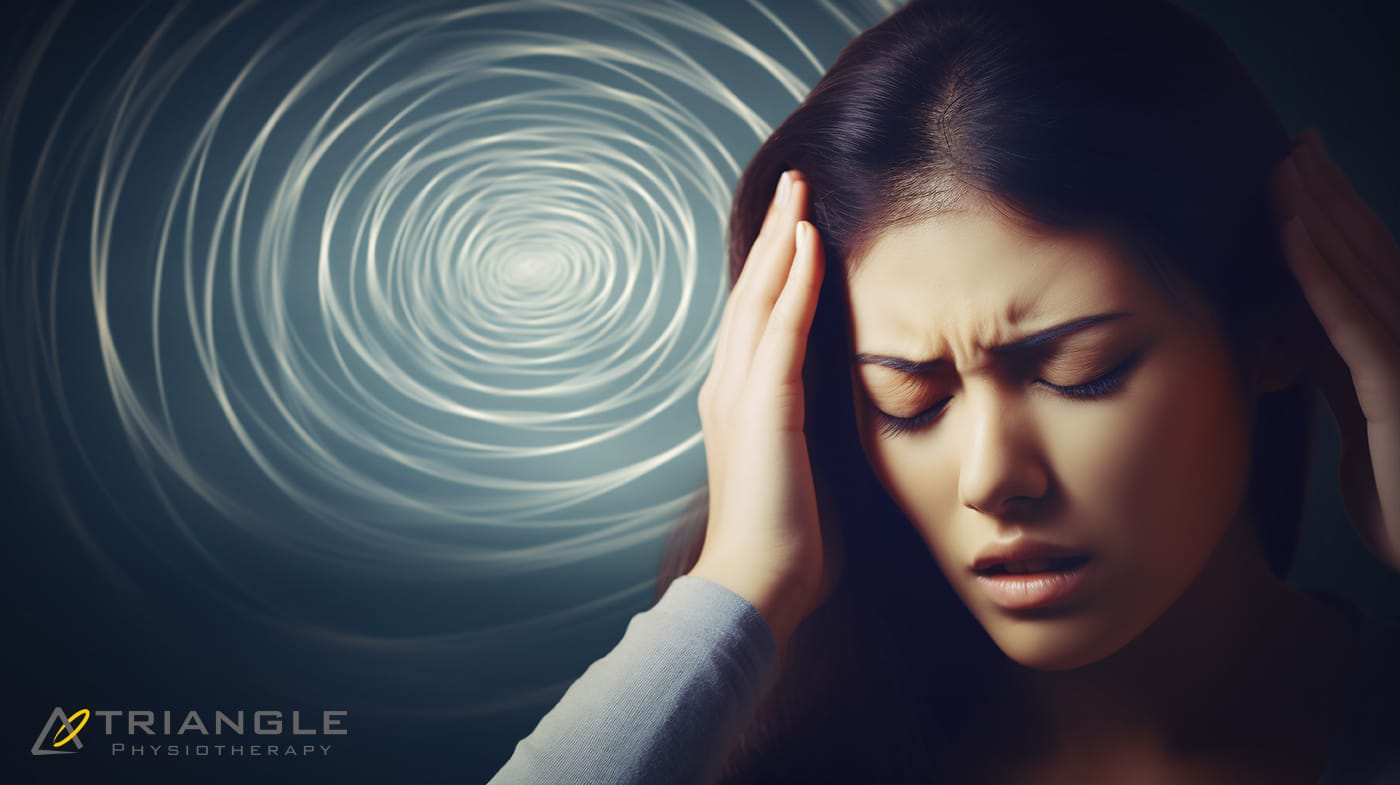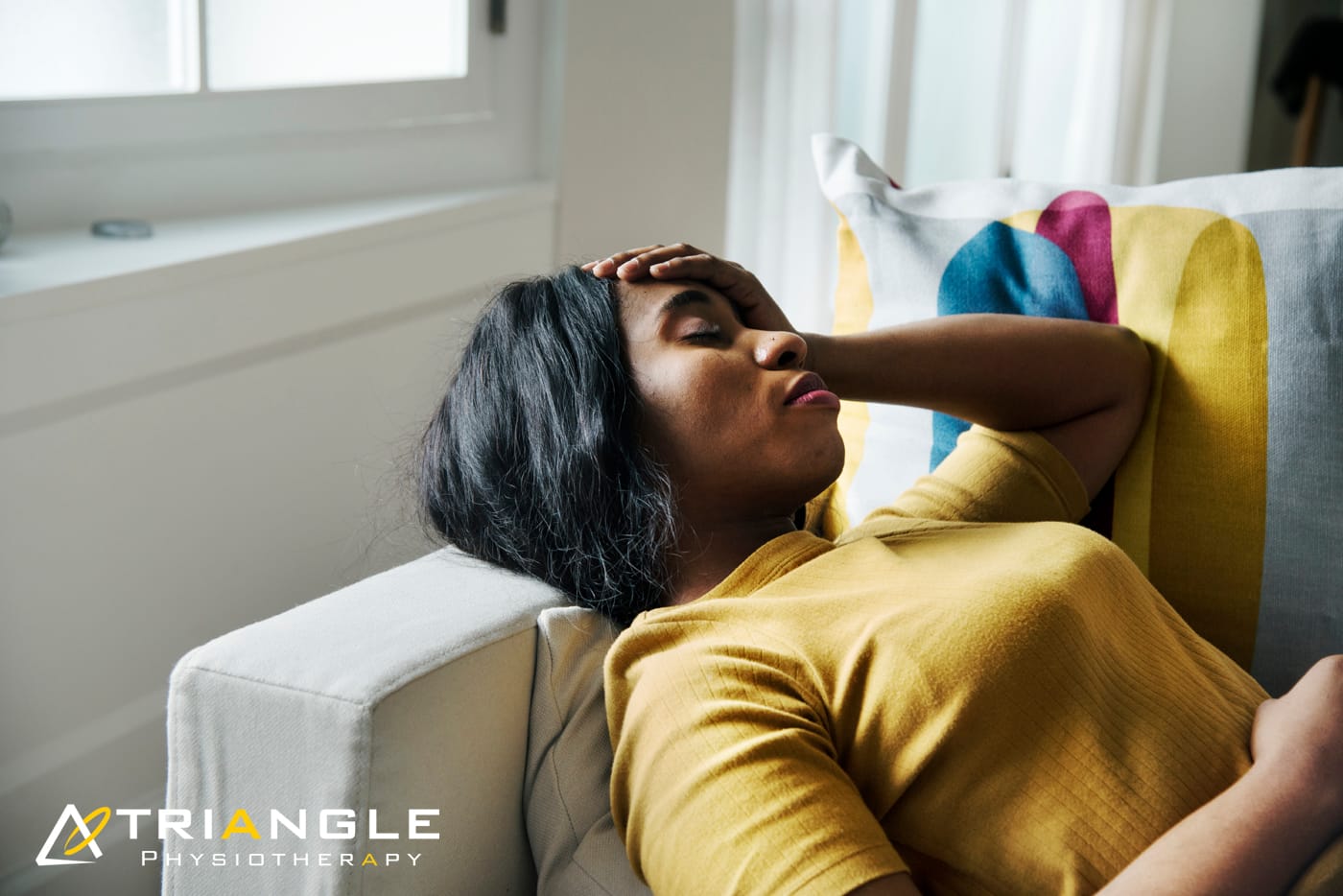Vestibular disorders are conditions that affect the inner ear and the brain’s ability to process balance and spatial information. These disorders can lead to symptoms like dizziness, vertigo, unsteadiness, and difficulty maintaining balance. They can significantly impact daily life, making it hard to perform routine tasks such as walking, driving, or even standing up without feeling lightheaded. Fortunately, physiotherapy can play a crucial role in managing vestibular disorders and helping patients regain their balance and quality of life.
At Triangle Physiotherapy Clinic, we understand how disruptive vestibular issues can be. In this blog, we’ll explore the role of physiotherapy in treating these conditions, the various treatment techniques involved, and how physiotherapists help patients manage their symptoms.
Understanding Vestibular Disorders
The vestibular system, located in the inner ear, is responsible for maintaining balance and spatial orientation.
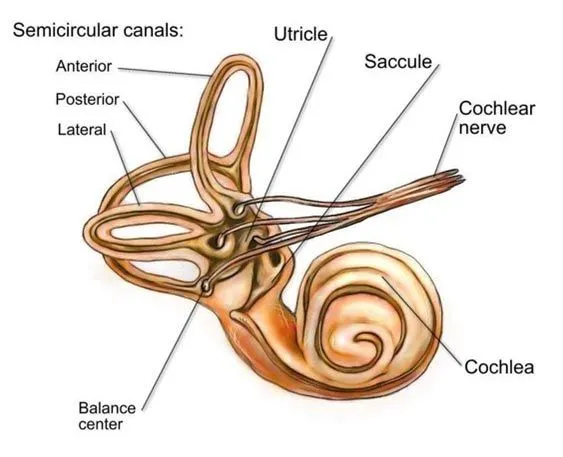
When there is a disruption to this system, such as an infection, injury, or degenerative condition, it can lead to a variety of symptoms:
- Dizziness or vertigo: A sensation that the world is spinning or moving.
- Balance problems: Difficulty standing or walking without feeling unsteady.
- Nausea: Often occurring in response to dizziness or vertigo.
- Sensitivity to movement: Everyday actions like turning the head or standing up can trigger symptoms.
Common vestibular disorders include benign paroxysmal positional vertigo (BPPV), Meniere’s disease, vestibular neuritis, and labyrinthitis. While medication can help alleviate some symptoms, physiotherapy offers an effective, non-invasive solution to manage and improve vestibular function.
How Physiotherapy Helps with Vestibular Disorders
For patients with Benign Paroxysmal Positional Vertigo (BPPV), physiotherapists use canalith repositioning maneuvers to relieve vertigo. This condition occurs when small calcium crystals in the inner ear become dislodged, disrupting your balance.
1. Vestibular Rehabilitation Therapy (VRT)
Vestibular Rehabilitation Therapy uses targeted exercises to improve balance and reduce dizziness. It retrains your brain and vestibular system to process sensory information accurately. VRT proves highly effective for conditions like BPPV, where the inner ear’s balance organs are affected, and for other vestibular disorders.
- What it involves: VRT typically includes exercises that focus on head and eye coordination, balance training, and habituation (getting used to movements that trigger dizziness). These exercises help the brain compensate for the imbalance caused by the vestibular disorder and improve overall stability.
- How it works: For example, exercises may include specific head movements to treat BPPV, which involves repositioning tiny crystals in the inner ear that cause vertigo. Other exercises focus on improving gaze stability and postural control, helping you maintain balance during daily activities.
2. Canalith Repositioning Maneuvers
For patients with Benign Paroxysmal Positional Vertigo (BPPV), a common vestibular disorder, physiotherapists can use specific head movements called canalith repositioning maneuvers to help alleviate vertigo. BPPV occurs when small calcium crystals in the inner ear become dislodged and disrupt the balance system.
- What it involves: The therapist performs precise head and body movements designed to move the displaced crystals back to their correct position. One well-known technique used for BPPV is the Epley maneuver, which has been proven to significantly reduce or eliminate symptoms of vertigo.
- How it works: By repositioning the crystals, the inner ear’s ability to send accurate balance signals to the brain is restored, providing relief from dizziness and vertigo.
3. Balance and Postural Training
Improving balance and posture is a cornerstone of vestibular rehabilitation. Many patients struggle with standing, walking, or turning their head without feeling unsteady. Physiotherapists use exercises that strengthen core muscles, enhance coordination, and rebuild your confidence in movement.
- What it involves: Training may include balance exercises performed while standing, sitting, or moving. These exercises are designed to challenge the body’s stability and improve proprioception (the sense of where your body is in space). By improving core strength, posture, and coordination, these exercises help reduce the risk of falls and promote more controlled movements.
- How it works: Balance exercises may include standing on one foot, walking in a straight line, or practicing functional movements like bending down to pick up an object. These exercises help retrain the brain to process information more effectively, which leads to better balance during everyday activities.
4. Gaze Stabilization Exercises
For patients with vestibular disorders, focusing on objects while moving the head can be particularly challenging. Gaze stabilization exercises (using laser and vestibular charts) are designed to improve the ability to maintain visual focus while the head is in motion, which is essential for activities like reading, driving, or walking in a crowded place.
- What it involves: The physiotherapist may instruct the patient to follow a moving target with their eyes or perform head movements while keeping their gaze fixed on a target. Over time, these exercises help reduce symptoms like dizziness that occur when the head moves quickly or when visual tracking is required.
- How it works: Gaze stabilization exercises help retrain the vestibular system and visual pathways to work together, improving your ability to maintain focus and orientation in dynamic environments.
5. Education and Self-Management Strategies
An often overlooked part of vestibular rehabilitation is educating patients on how to manage their symptoms independently. Understanding your condition, learning how to modify certain movements, and incorporating strategies to reduce triggers can help you maintain a better quality of life.
- What it involves: Your physiotherapist will provide education on lifestyle modifications, including techniques for managing dizziness during daily activities, posture correction, and tips for improving overall health (such as hydration and proper nutrition).
- How it works: Knowledge is power—by learning about your condition and how it affects your body, you’ll be better equipped to handle potential flare-ups and manage symptoms on your own. Your physiotherapist will empower you to take control of your recovery through self-management strategies.
Final Thoughts
Vestibular disorders can significantly impact your daily life, but physiotherapy offers a highly effective, non-invasive treatment option to help manage symptoms and improve overall balance and stability. Whether you’re dealing with vertigo, dizziness, or balance problems, a tailored physiotherapy program can help you regain control and reduce the impact of these disruptive symptoms.
At Triangle Physiotherapy, our team of experienced physiotherapists is here to guide you through every step of your recovery. If you’re struggling with a vestibular disorder, don’t wait—reach out to us today to schedule an assessment and begin your journey towards better balance and well-being.
Vestibular rehabilitation therapy (VRT) is a specialized form of therapy designed to treat problems related to the vestibular system, which is responsible for our sense of balance and spatial orientation. It is commonly used to address issues such as dizziness, vertigo, imbalance, and other symptoms associated with vestibular disorders.
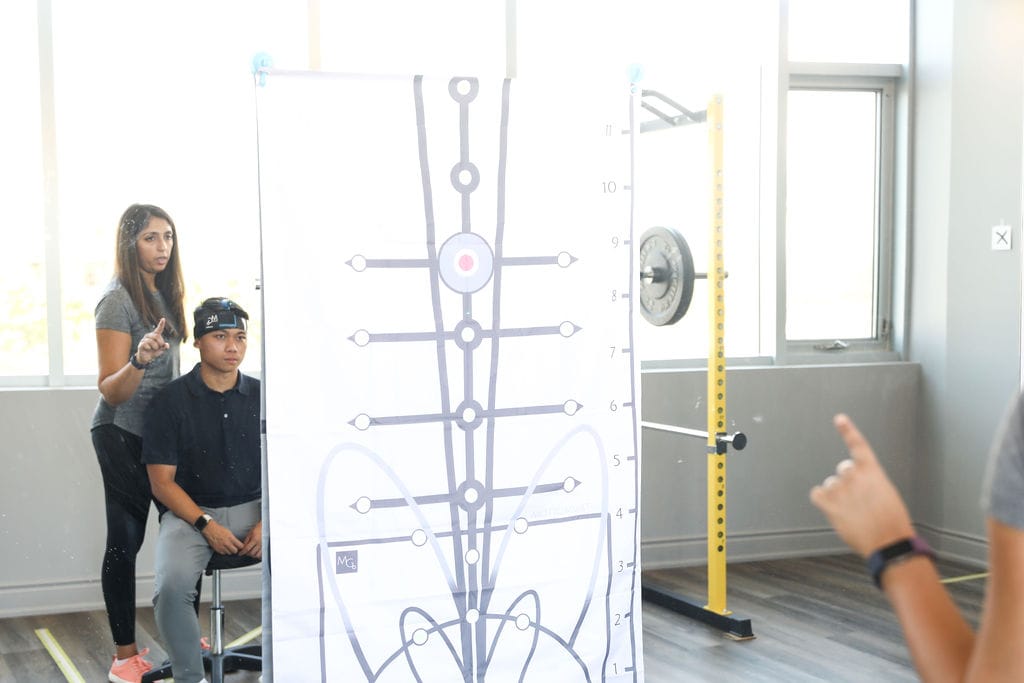
What are the symptoms of Vestibular Dysfunction?
The symptoms of vestibular disorder are:
- Dizziness: This is a sensation of lightheadedness, unsteadiness, or feeling like you or your surroundings are spinning (vertigo). Vertigo can be intense and can lead to nausea and vomiting in some cases.
- Imbalance and unsteadiness: Problems with balance and coordination are common in vestibular dysfunction. Individuals may feel off-balance, have difficulty walking in a straight line, or experience a tendency to veer or fall to one side.
- Nausea and vomiting: The sensation of vertigo can trigger feelings of nausea, which may lead to vomiting in some cases.
- Visual disturbances: Vestibular dysfunction can affect vision, causing blurring, difficulty focusing, or sensitivity to light and movement. Visual disturbances can worsen dizziness and disorientation.
- Tinnitus: Some individuals with vestibular dysfunction may experience ringing, buzzing, or other abnormal sounds in their ears (tinnitus).
- Sensitivity to motion: Motion sensitivity or an increased sensitivity to movement, known as motion intolerance, is common in vestibular dysfunction. Everyday activities like riding in a car, using escalators, or even watching fast-paced visual stimuli may trigger symptoms.
- Cognitive difficulties: Vestibular dysfunction can sometimes lead to problems with concentration, memory, and cognitive processing. Some individuals may experience difficulty thinking clearly or have a foggy or spaced-out feeling.
- Fatigue and anxiety: The physical and emotional stress caused by vestibular dysfunction can lead to feelings of fatigue and exhaustion. Anxiety and depression can also accompany vestibular disorders due to their impact on daily functioning and quality of life.
What is the Vestibular System?
The vestibular system is a complex sensory system located within the inner ear. It plays a crucial role in maintaining balance, spatial orientation, and coordination of head and eye movements. It is made up of:
- The vestibular organs
- The vestibular nerve
- The brainstem and the cerebellum
The vestibular system works in close conjunction with the visual system and proprioceptive system (sensory input from muscles and joints) to provide a comprehensive sense of spatial orientation and balance. It helps us maintain stable posture, make coordinated movements, and adjust our gaze to keep objects in focus during head and body movements.
When the vestibular system malfunctions or becomes disrupted, it can result in various vestibular disorders, leading to symptoms such as dizziness, vertigo, and imbalance. Vestibular rehabilitation therapy, as mentioned earlier, aims to address these issues by helping the brain adapt to vestibular dysfunction and restore normal function.
What types of conditions can benefit from Vestibular Rehabilitation Therapy?
Vestibular rehabilitation therapy (VRT) can be beneficial for various conditions that involve vestibular dysfunction or impairments in balance and spatial orientation. Some of the conditions that can benefit from VRT include:
- Benign Paroxysmal Positional Vertigo (BPPV): BPPV is a common vestibular disorder characterized by brief episodes of vertigo triggered by specific head movements. VRT can include canalith repositioning procedures, such as the Epley maneuver or the Semont maneuver, which aim to reposition displaced calcium crystals in the inner ear and alleviate symptoms.
- Vestibular Neuritis: Vestibular neuritis is an inflammation of the vestibular nerve typically caused by a viral infection. It results in severe vertigo, dizziness, and imbalance. VRT can help improve balance, reduce dizziness, and promote compensation for the damaged vestibular system.
- Labyrinthitis: Labyrinthitis is an inflammation of the inner ear labyrinth, often caused by a viral or bacterial infection. It leads to vertigo, dizziness, hearing loss, and sometimes ringing in the ears (tinnitus). VRT can aid in managing the dizziness and balance issues associated with labyrinthitis.
- Ménière’s Disease: Ménière’s disease is a chronic condition characterized by recurring episodes of vertigo, fluctuating hearing loss, tinnitus, and a feeling of fullness in the ear. VRT can be beneficial in managing dizziness and improving balance control during and between attacks.
- Post-Concussion Syndrome: After a concussion or traumatic brain injury, vestibular dysfunction can occur, leading to symptoms such as dizziness, imbalance, and difficulty concentrating. VRT can help address these symptoms, promote recovery, and improve overall function.
- Age-related Balance Disorders: As people age, they may experience age-related changes in the vestibular system, leading to balance problems. VRT can help older individuals improve their balance, reduce the risk of falls, and enhance their overall quality of life.
- Mal de Débarquement Syndrome (MdDS): MdDS is a disorder characterized by a persistent sensation of rocking or swaying, typically following a prolonged exposure to motion, such as a boat or plane ride. VRT can be used to help the brain readapt and reduce the sensation of motion.
- Unilateral or Bilateral Vestibular Hypofunction: When there is a significant reduction in vestibular function on one or both sides, it can result in balance deficits and dizziness. VRT can assist in compensating for the reduced vestibular input and improve balance control.
It’s important to note that the specific treatment approach may vary depending on the individual’s condition, symptoms, and the expertise of the healthcare professional providing the therapy. A qualified vestibular specialist or physiotherapist trained in vestibular rehabilitation can assess the individual’s needs and develop a tailored treatment plan for optimal outcomes.
Can Vestibular Rehabilitation Therapy help me?
You can certainly benefit from vestibular physiotherapy even if your condition is chronic. Through a variety of exercises and techniques, vestibular physiotherapy aims to enhance balance, reduce dizziness, and improve overall function of the vestibular system. With the help of various exercises and techniques vestibular physiotherapy can help reduce your dizziness, improve your balance and enhance the quality of your life.
Vestibular Physiotherapy Near Me
Click HERE to book an appointment with a vestibular rehabilitation physiotherapist at one of our eight locations.
- Physiotherapy Etobicoke – Triangle Physiotherapy Etobicoke
- Oakville Physiotherapy Clinic – Triangle Physiotherapy Oakville
- Physiotherapy North York – Triangle Physiotherapy North York
- Mississauga Physiotherapy Clinics – Triangle Physiotherapy Mississauga
- Downtown Physiotherapy Clinics – Triangle Physiotherapy King West
- Uptown Physiotherapy Clinics – Triangle Physiotherapy Lawrence Park
- Physiotherapy Clinic Downtown Toronto – Triangle Physiotherapy Queens Quay
- Physiotherapy Clinics Mississauga – Triangle Physiotherapy Erin Mills
“Vestibular Rehabilitation Therapy (VRT) is a specialized form of physiotherapy designed to alleviate symptoms of vertigo and dizziness. Triangle Physiotherapy offers expert VRT services across the GTA, including Physiotherapy in Etobicoke, Oakville, North York, Toronto, Lawrence Park, Queens Quay, Erin Mills, Mississauga, and Liberty Village. Our experienced physiotherapists can help you regain balance and improve your quality of life through tailored vestibular rehabilitation programs.”
It is always an inconvenience when our bodies don’t perform the way we want them to. It is especially worrisome when we don’t understand why we aren’t feeling at our best. Many times, the feeling of being “off” can be attributed to a vestibular problem. Vestibular disorders can affect a person in numerous ways, and often without any pattern. The vestibular system includes the parts of the inner ear and brain that help control balance and eye movements. It consists of five sensory organs that provide our brain with information about head position and movement.
People with vestibular disorders often experience problems with vertigo, dizziness, and visual disturbance. Although dizziness & vertigo can occur in people of any age, it is more common among older adults. The feeling of dizziness can be tough to manage and might cause someone to restrict their physical activities and social engagements in order to prevent an injury from a fall. Other typical, secondary problems that can arise from vestibular disorders are nausea/vomiting that reduced the ability to focus or concentrate and fatigue.
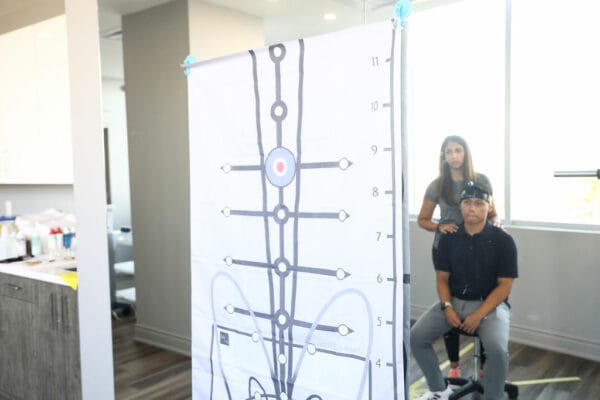
Evidence has shown that vestibular rehabilitation can be effective in improving symptoms related to many vestibular disorders. Symptoms due to vestibular disorders can reduce the quality of life and slow down all aspects of our daily routine.
Also read, Physiotherapy Clinic in Oakville
Some common symptoms are:
- Dizziness and imbalance
- Decreased in muscular strength and flexibility
- Increased joint stiffness
- Reduced on stamina
- Vision disturbance
- Hearing changes
- Psychological changes
Diagnosis and treatment are not always the only solution for vestibular disorders. It is important to understand some common, significant limitations in order to better manage them.
Also read, Physiotherapy Mississauga
Some common limitations are:
- Balance is commonly taken for granted until it is impaired
- People with vestibular disorders can suffer cognitive impacts, such as poor concentration, memory, and word recall
- People also restrict their movement and activity levels to avoid pain
It is important to note that most of these symptoms can also be caused by other conditions and should be discussed with a healthcare professional or a skilled physiotherapist. At Triangle Physiotherapy, with the help of our skilled team of physiotherapists, your vestibular issues can become a thing of the past!
Vestibular rehabilitation is crucial for managing vertigo and improving balance through targeted exercises and therapy. If you are in need of professional physiotherapy services for vestibular rehabilitation, consider clinics in physiotherapy Etobicoke, Oakville, North York, Toronto, Lawrence Park, Queens Quay, Erin Mills, Mississauga, and Liberty Village. These clinics offer expert care and personalized treatment plans to help you regain stability and enhance your quality of life.

